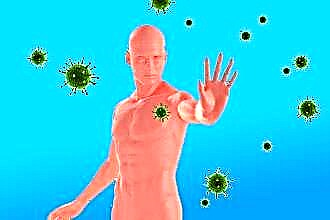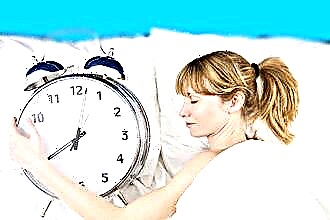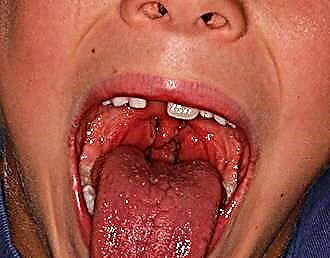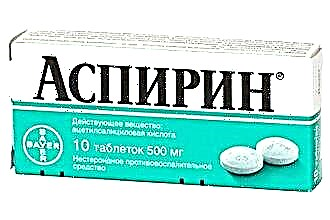Blood pressure figures are somewhat individual for each person and depend on the characteristics of the organism, heredity, working conditions and occupational factors. When they fall in the morning after sleep, they talk about the development of hypotension. This condition causes a lot of unpleasant symptoms: general weakness throughout the day, decreased ability to work, headache, dizziness, nausea. Treatment is carried out taking into account the cause of the disease, special attention is paid to the correction of lifestyle, work and rest.
What circadian rhythms does blood pressure have?
 Blood pressure (BP) is an important indicator of the functioning of the cardiovascular system and vital activity in general. As a result of the contractile ability of the heart and the resulting pressure in large and small arteries, blood pressure is created, measured in millimeters of mercury (mm Hg). This value is not constant. Under the influence of various external or internal factors, it can change, increase or decrease from the figures of the normal limit, which is 120/80 mm Hg. With hypertension, it reaches 130/80 mm Hg and above. With hypotension, the pressure drops below 90/60 mm Hg.
Blood pressure (BP) is an important indicator of the functioning of the cardiovascular system and vital activity in general. As a result of the contractile ability of the heart and the resulting pressure in large and small arteries, blood pressure is created, measured in millimeters of mercury (mm Hg). This value is not constant. Under the influence of various external or internal factors, it can change, increase or decrease from the figures of the normal limit, which is 120/80 mm Hg. With hypertension, it reaches 130/80 mm Hg and above. With hypotension, the pressure drops below 90/60 mm Hg.
The human pressure is influenced by the circadian rhythm; with the change of day and night, the intensity of metabolic processes, hormone secretion, and metabolism in the body changes. The normal functioning of organs depends on the daily routine; with a regular sleep-wake cycle, the mechanisms of the biological clock are not disturbed.
Blood pressure is characterized by:
- There are two phases: a peak during the daytime, and a decline at night.
- At normal pressure during the daytime, blood pressure can increase within 20-30 mm Hg. This happens during vigorous physical activity or against the background of emotional experiences.
- At night, the parameter decreases by 10 - 20 mm Hg. during deep sleep phases.
- Characterized by an increase in pressure in the morning until 10.00, in the evening until 18.00.
- A decrease is observed between midnight and 3-4 hours, with normalization on awakening, reaching the highest values by 11-12 hours of the day.
A person's biological clock has a direct impact on blood pressure. Violations of rhythm fluctuations and, as a consequence, blood pressure, arise as a result of certain factors: the intake of alcohol or drugs, insufficient rest, exhausting work the day before, weather conditions, individual characteristics, age, the presence of concomitant diseases.
A shift in circadian rhythms is manifested by hypotension, as a result of which the patient is worried about low blood pressure in the morning after sleep.
Why is there hypotension after sleep and what does it mean?
In the human body, everything is interconnected. Hypotension may indicate a violation of the functioning of the cardiovascular and nervous system, the presence of concomitant pathology or the influence of external factors, under the influence of which hypoxia (oxygen starvation) develops, blood flow is disturbed, the rate of blood circulation and oxygen delivery to the brain and vital organs decreases.
The main causes of low blood pressure in the morning are listed below:
 Disease of the thyroid gland, adrenal glands, impaired secretion of hormones.
Disease of the thyroid gland, adrenal glands, impaired secretion of hormones.- Pregnancy, malnutrition, dehydration.
- Physiological compensatory hypotension and bradycardia (slow heart rate) against the background of frequent intense training in professional athletes.
- Injuries, osteochondrosis or congenital pathology of the cervical vertebrae, when the vessels are compressed in which the blood flow is disturbed.
- A hereditary feature of blood vessels, a decrease in the elasticity and tone of their walls.
- Influence of the environment, high-altitude terrain with a rarefied atmosphere, tropics with a hot climate, cold.
- Vegeto-vascular dystonia, chronic stress, lack of adequate rest during intense physical and / or psycho-emotional stress.
- Atherosclerosis, heart disease, valvular defects, rhythm and conduction disturbances.
- Weakening of immunity, vitamin deficiency, a consequence of poisoning, intoxication.
- After losing a lot of blood in trauma, in women with menstruation.
How to deal with this condition?
Treatment of the underlying problem that caused the hypotension leads to a permanent normalization of blood pressure. In this regard, it is extremely important, when characteristic symptoms appear, to consult a doctor for examination and not to self-medicate.
 To correct blood pressure, the following drugs can be prescribed:
To correct blood pressure, the following drugs can be prescribed:
- Based on herbal ingredients that increase vascular tone, and, as a result, pressure: tinctures of ginseng, eleuthero and lemongrass in drops (drugs are contraindicated for hypertensive patients).
- Antioxidants
- Nootropics.
- With concomitant psychosomatic pathology Antidepressants.
- Vitamins.
- Hormonal drugs.
- General strengthening and tonic means.
- Alpha adrenergic agonists.
- Analeptics.
- Antispasmodics.
Can a morning fall be avoided?
When low blood pressure is concerned in the morning, an integrated approach of therapy will be most effective.
In addition to taking medications, it is necessary to normalize the daily routine:
 night sleep should be at least 7 - 9 hours;
night sleep should be at least 7 - 9 hours;- you should go to bed and wake up at the same time;
- after waking up, do not suddenly get out of bed;
- minimize the use of stimulating drinks before bedtime, coffee, alcohol, energy drinks;
- walking in the fresh air before bedtime, airing the room are recommended;
- to improve well-being in the morning, it is worth taking a contrast shower, having a full breakfast;
- when taking sedatives or sedatives, you need to consult a doctor, these drugs can cause hypotension.
For hypotonic people, the atmosphere at work and in the family is important, since stress most often leads to a worsening of the condition. A very effective means of normalizing blood pressure is regular gentle physical activity. Jogging short distances, remedial gymnastics, swimming or walking in the park are recommended. Massage and hardening are shown to strengthen blood vessels. For preventive purposes, sanatorium-resort treatment, trips to the sea, walks in the woods are prescribed. It is also necessary to independently measure the pressure at home and observe the frequency of outpatient examinations by a doctor.
Conclusions
Arterial hypotension can occur at any age. Moderate low blood pressure is not a dangerous pathology, but it can significantly worsen the patient's condition, limit the ability to work, and cause unpleasant symptoms: weakness, trembling in the arms and legs, dizziness and drowsiness after sleep, up to loss of consciousness with a strong decrease in blood pressure. Given the variety of factors that can cause hypotension, when the first signs of the disease appear, it is necessary to consult a therapist, cardiologist or neuropathologist. After the examination, the doctor will prescribe therapy and adjust the mode of work and rest.

 Disease of the thyroid gland, adrenal glands, impaired secretion of hormones.
Disease of the thyroid gland, adrenal glands, impaired secretion of hormones. night sleep should be at least 7 - 9 hours;
night sleep should be at least 7 - 9 hours;

